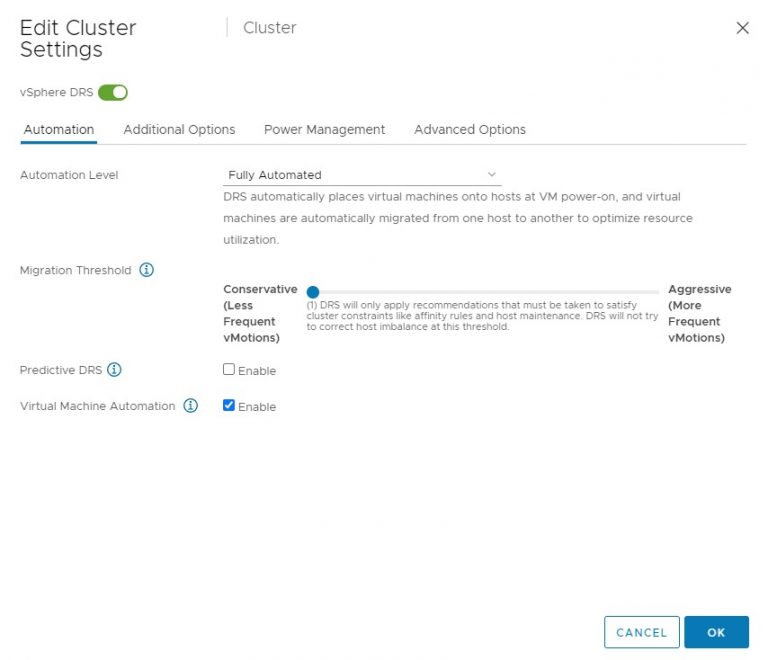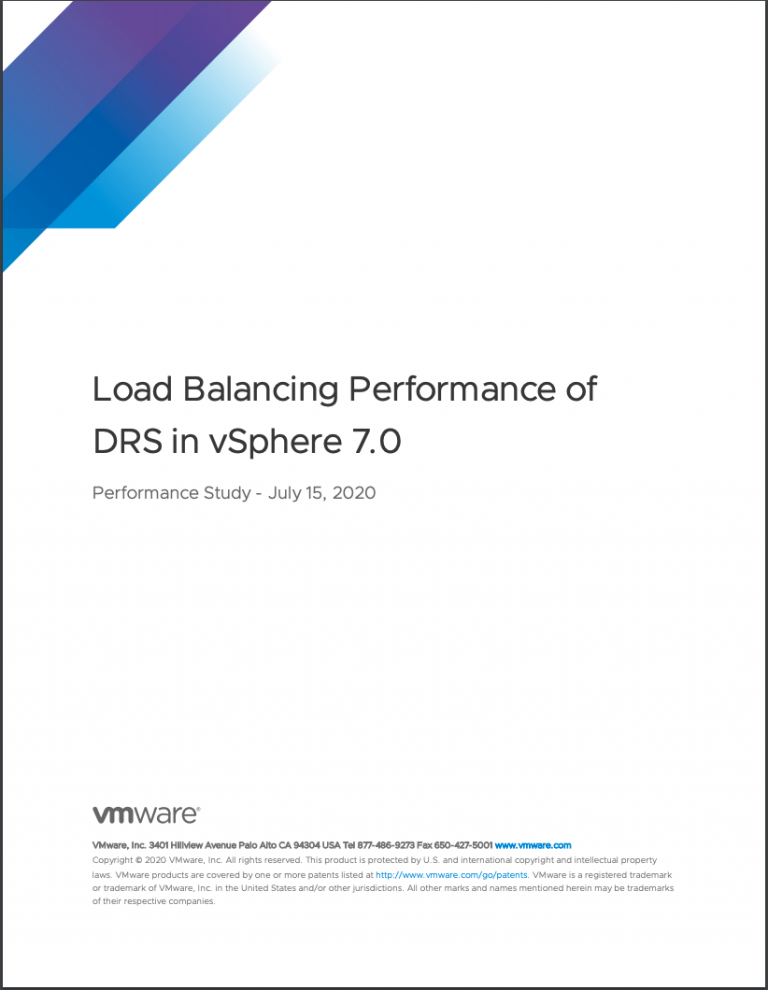On a regular basis I receive questions about the behavior of DRS when dealing with preferential VM to Host affinity rules. The rules configured with the rule set “should run on / should not run on” are considered preferential. Meaning that DRS prefers to satisfy the requirements of the rules, but is somewhat flexible to run a VM outside the designated hosts. It is this flexibility that raises questions; lets see how “loosely” DRS can operate within the terms of conditions of a preferential rule:
Question 1: If the cluster is imbalanced does DRS migrate the virtual machines out of the DRS host group?
DRS only considers migrating the virtual machines to hosts external to the DRS host group if each host inside the group is 100% utilized. And if the hosts are 100% utilized, then DRS will consider virtual machines that are not part of a VM-Host affinity rule first. DRS will always avoid violating an affinity rule
Question 2: When a virtual machine is powered on, will DRS start the virtual machine on a host external to the DRS host group?
By default DRS will start the virtual machine on hosts listed in the associated Host DRS group. If all hosts are 100% utilized – or – if they do not meet the virtual machine hardware requirements such as datastore or network connectivity, then DRS will start the virtual machine on a host external to the Host DRS group.
Question 3: If a virtual machine is running on a host external to the associated host DRS group, shall DRS try to migrate the virtual machine to a host listed in the DRS host group?
The first action DRS triggers during an invocation is to determine if an affinity rules is violated. If a virtual machine is running on a host external to the associated Host DRS group then DRS will try to correct this violation. This move will have the highest priority ensuring that this move is carried out during this invocation.
3 common questions about DRS preferential VM-Host affinity rules
1 min read

